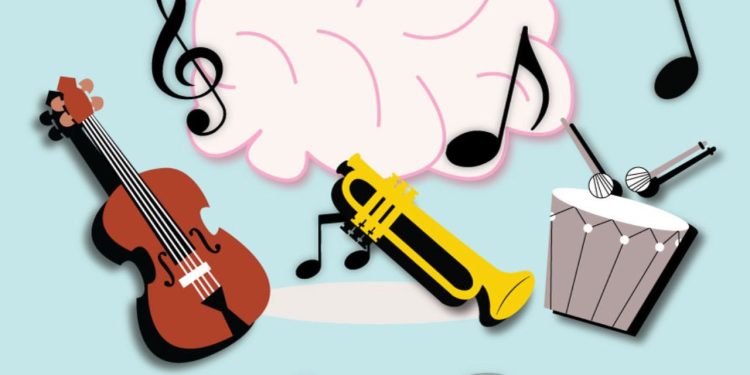Music has been used since ancient times to enhance well-being and overcome mental suffering. It is recognized for its therapeutic value, and it is one of the major sectors that flourishes rapidly, thanks to its magical effects on human psychology. According to research from John Hopkins Medicine, music can reduce anxiety, blood pressure, and pain while also improving sleep quality, mood, mental alertness, and memory. It supports a healthy lifestyle because when we listen to music, our brain releases a hormone called dopamine. This hormone plays a crucial role in various body functions, including movement, memory, pleasurable rewards, and motivation.
Music, as described by John Hopkins Medicine, is a highly structured mathematical and architectural flow of words. These flows of words, like mathematical equations, are understood differently by everyone. The same words, lyrics, and tempo can evoke varying emotions depending on an individual’s mood.
In the medical world, music played a vital role. Music therapy has both psychological and physiological effects on people. Music can be considered as food for the human soul. Candace Catkin-De Carvalho, the clinical director of the Absolute Awakenings treatment center in New Jersey, stated that music has a powerful ability to impact mood and behavior. Various studies show that children are naturally drawn to the flow and tempo of words, which we call lyrics. Kids’ rhymes are among the most listened-to content worldwide, highlighting humans’ natural attraction to music. In developed countries, the concept of music education is widely discussed due to its numerous benefits, especially for premature infants, where lullabies and classical music aid in weight gain and reducing episodes of oxygen desaturation.
Music nostalgia is another significant psychological effect of music. According to Katherine Gillespie’s column in Motherboard Tech by VICE, there is a neurological reason why songs transport us back in time. The dopamine effect of music makes humans extremely nostalgic, and we are adept at identifying music associated with major events in our lives. Scientists have even found that babies exhibit this characteristic.
Neuroscientists have monitored people’s brains in real-time using instruments like fMRI (Functional Magnetic Resonance Imaging) or PET (Positron Emission Tomography). When participants were asked to read something or solve mathematical equations, specific parts of the brain were activated. However, when they were asked to listen to music, something magical happened. Various parts of the brain worked simultaneously, with some areas understanding melody, others rhythm, and some decoding lyrics. Eventually, all these components of the brain unite to provide a unified musical experience, occurring within milliseconds. One major part of the brain that music lights up is the visual cortex. Neuroimaging has shown that music stimulates the visual cortex, which indicates that when we listen to music associated with memorable events from our past, our brain recalls these events in actual visual form. According to Amee Baird, a neuropsychologist at the University of Melbourne, couples with a special song that signifies an important moment in their relationship can strengthen their mood and possibly alleviate the effects of dementia, a general term for memory loss.
Research has shown that most people hear their favorite songs during their early teenage years because this is when brain growth is at its peak, and emotional sentiments are high. Economist Seth Stephens-Davidowitz used Spotify listening data from 2021, revealing that decades-old songs are most popular among listeners who were in their early teens when these songs were released. For instance, Radiohead’s “Creep” is most listened to by men who were around 14 when they first heard it. On average, men’s favorite songs were released when they were between the ages of 13 and 16, while women’s favorite songs were solidified when they were slightly younger, between the ages of 11 and 14.
Student articles edited by AI


